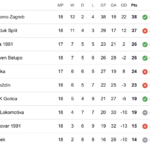ZAGREB, December 5, 2018 – Labour and Pension System Minister Marko Pavić said in parliament on Tuesday that the pension reform was aimed at increasing pensions, securing the system’s long-term sustainability and to redress the imbalance between generations, however, during the debate in parliament, opposition lawmakers said that the reform was prepared without taking into consideration any demographic analysis and that a lot more should have been done, adding that this was the worst possible Christmas present for citizens.
“By the end of 2020, 3,000 women will retire and will receive a pension 600 kuna to 700 kuna lower than current pension recipients and we know that their pensions are not high. That problem inspired us to resolve the problem and we did with the supplement of 27% and then we turned to fully improve the entire pension system,” Pavić explained.
Parliament was debating a pension package comprising three laws in second reading.
The reforms are geared toward current pensioners, Minister Pavić explained and added that it has secured an increase for 248,000 people who had the lowest pensions and current pensioners with the lowest pensions can expect an increase of more than 6% next year and all pensioners have been provided with the opportunity for part-time work in addition to their pensions.
Pavić said that the average pensioner in Croatia has a working life of 30 years and added that the intention is to increase pensions for current pensioners but without jeopardising state finances.
The pension reform which is expected to enter into force as of 1 January 2019 foresees increasing working life to 67 as of 2033, penalising early retirement by a rate of 0.3% each month or 18% for five years. He reiterated that pensioners would be allowed to continue working 4 hours a day while keeping their pensions.
Beneficiaries of the second pillar pensions system will be given the option to choose which pillar to take their pension from.
“Do more because it’s your obligation to save pensioners from poverty, and there are 90% of them. Adjust trends for the average pension to be in line with the average monthly pay, because now they are a mere 39% of the average wage, and we are almost the worst in the EU in that regard,” MP Ivan Lovrinović of the opposition Let’s Change Croatia party.
“We’ve increased the average pension to 2,700 kuna, which is 43% of the average pay. And we are pleased to say that people with a 40-year working life have an average pension of 4,600 kuna which is 70% of the average pay,” Minister Pavić retorted.
The Social Democratic Party (SDP) is opposed to this type of reform because it is aimed exclusively at decreasing pensions for future pensioners and to make a saving on them. According to the proposal, citizens will work longer, receive less and have a much harder life in retirement, SDP leader Davor Bernardić said, criticising the government for not having the decency to even consult with unions.
He called out the government claiming that it is forcing people to work outside Croatia and that during this government’s term, more than 100,000 people had emigrated. He added that raising the retirement age to 67 was unacceptable.
Bernardić said Labour Minister Marko Pavić’s proposal was bad, dangerous, destructive and socially irresponsible. The proposed reform is showing pensioners that the future can be even worse than the present, Bernardić said.
It’s illusionary to discuss whether the pension age will be 63, 65 or 67 while our demographic picture is as it is, MP Nikola Grmoja (MOST) said.
MP Anka Mrak Taritaš (GLAS) referred to the pension reform as something “so-called,” and that there actually hasn’t been any reforms during this government’s term.
Parliamentary groups forming the ruling majority commended the government’s proposal saying that it was necessary to take into account the circumstances in which the reform is being adopted.
For more on the pension system in Croatia, click here.







